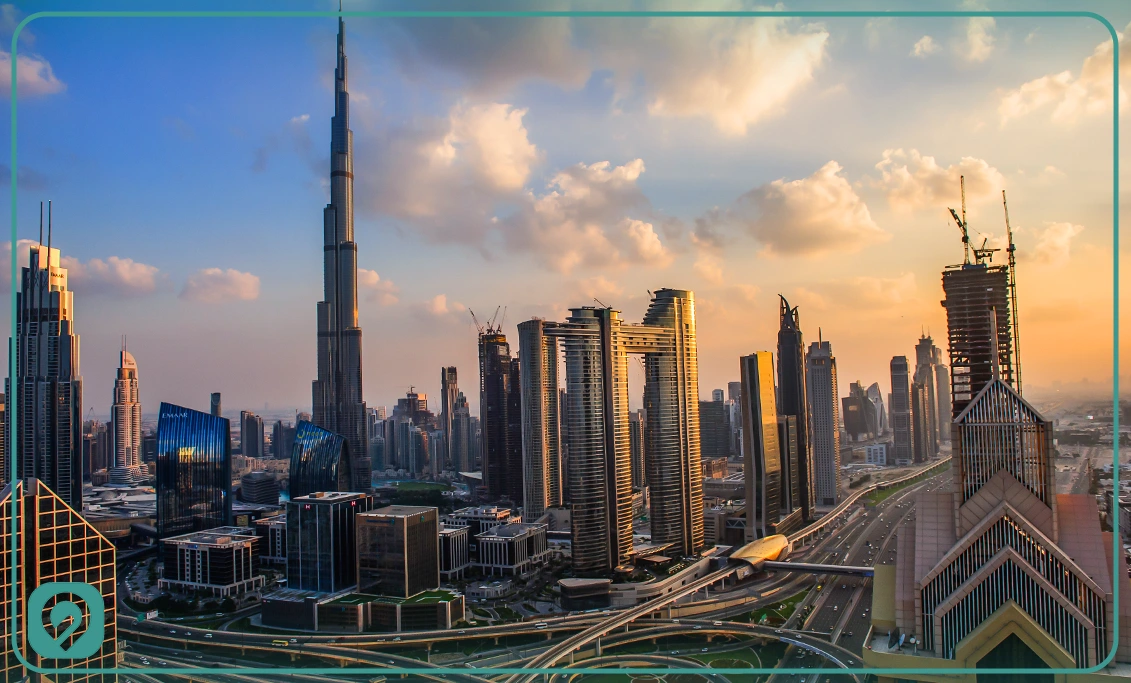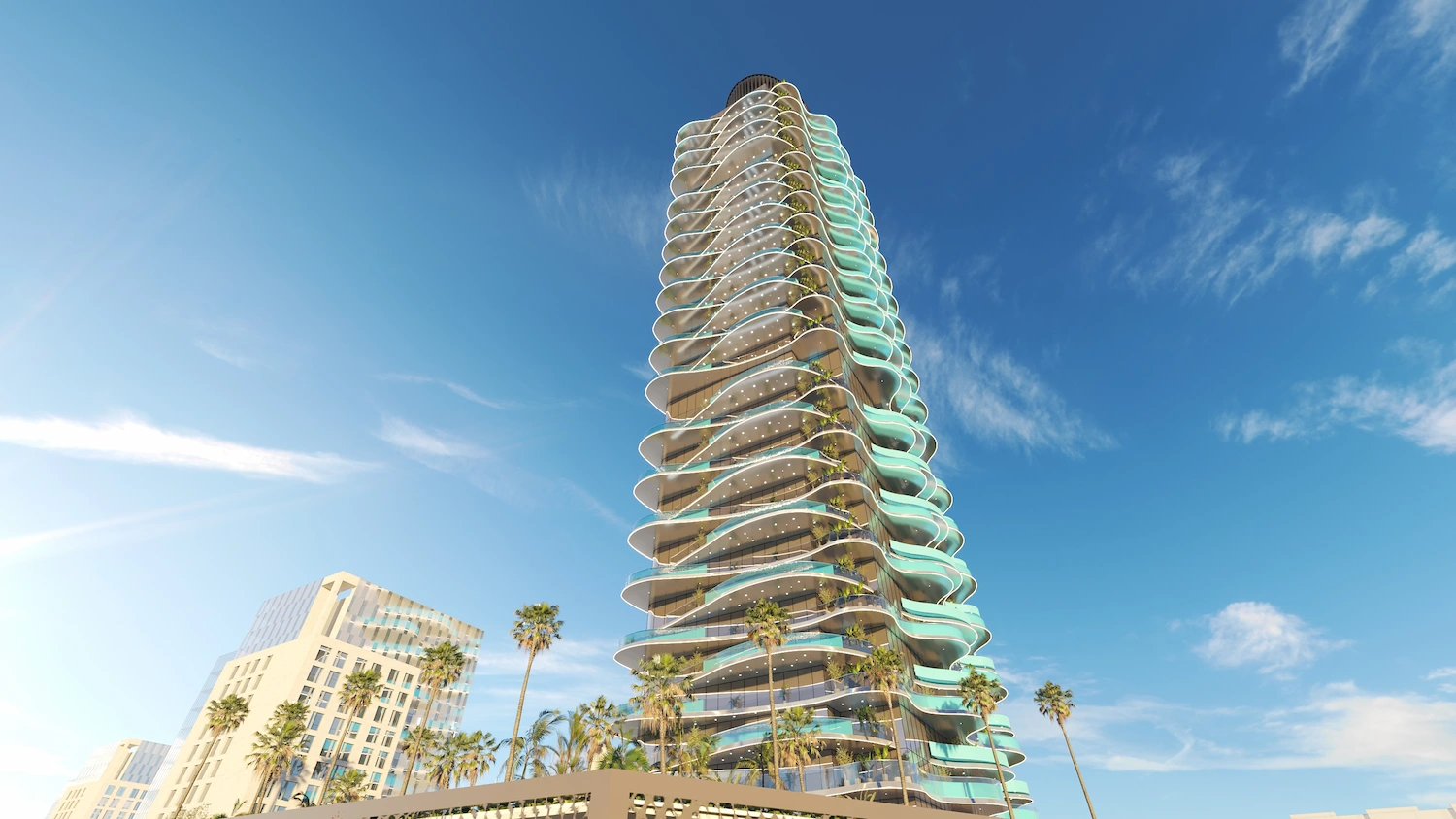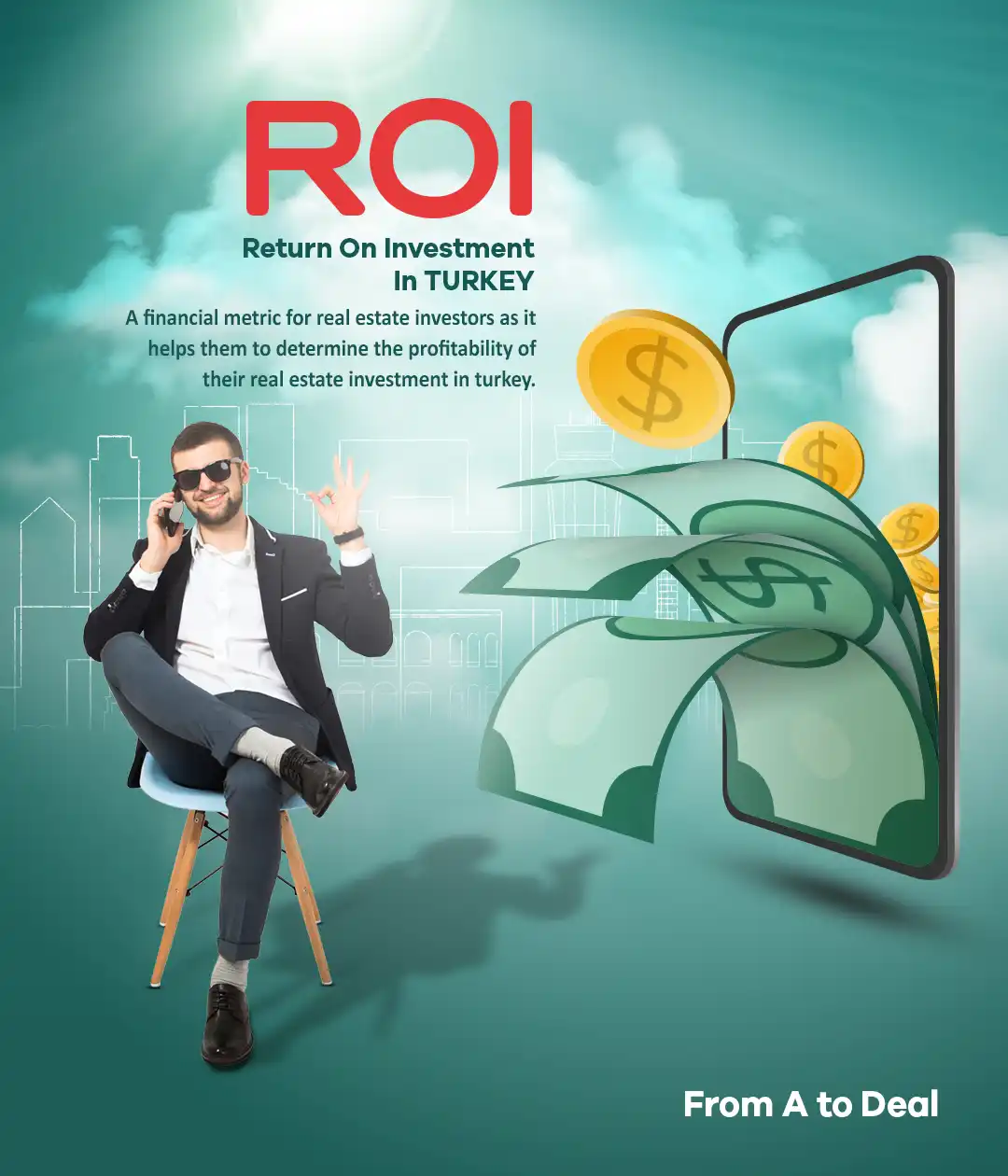Information About Dubai
Complete information about the Emirate of Dubai, which is part of the United Arab Emirates

- The history of the Emirate of Dubai and its establishment
- Geography and weather in Dubai
- Information about the regions of the Emirate of Dubai and its administrative divisions
- Administrative departments in the Emirate of Dubai
- Infrastructure in the Emirate of Dubai and its development over the past 10 years
- Economic and commercial development in Dubai
- The development of tourism in Dubai
- Urban diversity in Dubai and its impact on the world
- The government's role in exporting Dubai's image globally
The history of the Emirate of Dubai and its establishment
The Emirate of Dubai is one of the emirates of the United Arab Emirates and is distinguished by its ancient and distinguished history that dates back many centuries. Previously, Dubai was an important location for trade, fishing and agriculture, and was mainly based on the traditional economy.
The Emirate of Dubai was established as an independent entity in 1971 after its independence from British colonialism, after which it joined the United Arab Emirates. Dubai was officially established as an emirate under the union agreement signed between the two sister emirates, Dubai and Abu Dhabi, along with the other emirates.
Since its founding, Dubai has witnessed incredible economic growth and development, transforming from a small desert emirate into a leading global destination. Among the most prominent factors that contributed to this rapid development is its distinctive geographical location on the coast of the Arabian Gulf, its interest in diversifying the economy, providing modern infrastructure, and large investments in various sectors.
The emirate of Dubai has become known for its modern landmarks and prominent architectural symbols, such as the Burj Khalifa, which is considered the tallest tower in the world, the artificial Palm Island, and the symbolic Burj Al Arab. These landmarks not only represent a symbol of Dubai's development but also reflect the uniqueness and economic and development vision that distinguishes the Emirate of Dubai.
Geography and weather in Dubai
The Emirate of Dubai is located in the northeast of the Arabian Peninsula and overlooks the eastern coast of the Arabian Gulf. Dubai is strategically located close to the southern border of Oman, which is part of the United Arab Emirates.
The natural geography of Dubai is characterized by desert areas and sandy deserts extending to the horizon, which reflects the dry and hot environment that dominates most areas of Dubai. However, the emirate offers an amazing spectacle of natural diversity thanks to the presence of the Arabian Gulf and the many beautiful bays and beaches on the eastern coast.
As for the weather, Dubai's climate is generally dry and hot throughout the year, with summers in particular being extremely hot. Temperatures reach very high levels during the summer months, easily exceeding 40°C. The winter season is mild and refreshing, with moderate temperatures ranging between 15 and 25 degrees Celsius.
The months between November and April are considered the best period to visit Dubai due to lower temperatures and mild and pleasant weather. This period attracts many tourists, especially from Europe and cold parts of the world, to enjoy the beaches and tourist attractions in Dubai.
In general, Dubai provides an attractive natural environment despite the high temperatures during the summer, with stunning views of the desert and the Arabian Gulf, making it a distinctive destination for tourists and residents alike.
Information about the regions of the Emirate of Dubai and its administrative divisions
The emirate of Dubai is one of the seven emirates that make up the United Arab Emirates and is known for its diverse regions and a variety of regions and administrative divisions that offer diverse experiences for residents and visitors. Here is some information about some of these areas:
- Deira: Deira is considered one of the oldest areas in Dubai and is located in the north of the emirate. Deira is home to many cultural and historical landmarks, such as the Dubai Museum and the traditional market "Old Souk", and it is a lively area that combines heritage and urban areas.
- Bur Dubai: It is located on the eastern coast of Dubai and has beautiful sandy beaches and entertainment facilities. Includes Bur Dubai areas such as Al Mamzar, Jumeirah Beach Residence and Jumeirah Beach Hotel.
- Dubai Marina: This modern residential area is famous for its luxury towers and beautiful water canals. Dubai Marina offers a luxurious urban lifestyle with numerous restaurants, shops and entertainment facilities.
- Business Bay: A major commercial area that includes many commercial centers, offices, and luxury hotels. Business Bay is considered the heart of business in Dubai and attracts businessmen and investors.
- Jumeirah: Jumeirah is located in the middle of Dubai and includes a variety of luxury homes and modern facilities. It is considered a desirable residential area for families and individuals.
- Jumeirah Village: A diverse residential area that offers multiple residential options, including apartments, villas, and country homes.
- Al Khawaneej: An area located in the east of Dubai and includes traditional houses and agricultural facilities. Al Khawaneej reflects the ancient culture and heritage of the emirate.
The Emirate of Dubai is divided into several diverse regions and groups that provide different experiences for residents and visitors. This diversity ensures that there is something for everyone in Dubai, whether you are looking for urban living, rural comfort, or luxury and entertainment.
Administrative departments in the Emirate of Dubai
Dubai Oasis Authority
The Dubai Oasis Authority was established with the aim of developing and managing the Dubai Oasis, one of the largest artificial nature projects in the world.
Dubai Oasis is characterized by its stunning views and natural environment surrounding water bodies, green spaces, and recreational activities.
The Dubai Oasis Authority aims to enhance the natural environment and provide recreational and cultural facilities for residents and visitors.
Community Development Authority
The Community Development Authority was established in Dubai to promote social, cultural, and economic development in the emirate.
The Authority implements projects and initiatives aimed at improving the quality of life of residents and promoting social and cultural values.
Dubai Sports Council
The Dubai Sports Council is responsible for developing and promoting sports in the Emirate of Dubai.
The Council organizes many sporting events and tournaments and supports youth participation in sporting activities.
Dubai World Trade Center ( DWTC )
Dubai World Trade Center is one of the most prominent commercial and social facilities in Dubai.
The center includes a variety of meeting and exhibition halls, logistical facilities, and hotels.
Dubai International Financial Center ( DIFC )
The Dubai International Financial Center is a leading financial center in the region. The center hosts many financial institutions and international companies and provides an encouraging environment for business and investment.
These subdivisions play a vital role in developing and managing various aspects of life in Dubai, whether by taking advantage of the unique natural environment, promoting culture and sports, or promoting commercial and financial activity. These divisions reflect the Emirate of Dubai's commitment to developing a prosperous future for its residents and visitors.
Infrastructure in the Emirate of Dubai and its development over the past 10 years
The Emirate of Dubai is known for its advanced infrastructure, which has witnessed tremendous development over the last ten years. These developments reflect the emirate's commitment to achieving progress and leadership in a variety of sectors. Here's a look at Dubai's infrastructure and its development in the last decade:
Transportation and roads
Dubai has witnessed a significant expansion of its network of roads and bridges, which has facilitated movement in the city.
Important projects such as Sheikh Mohammed bin Rashid Road, Sheikh Zayed Road, and Sheikh Mohammed bin Zayed Road were built.
The public transportation system has been developed, including the Dubai Metro and air-conditioned buses, providing more mass transportation options.
Airports and ports
Dubai International Airport is one of the largest and busiest airports in the world and has witnessed continuous expansion to accommodate more passengers.
Jebel Ali Port and Port Rashid represent modern and important maritime facilities for shipping and trade.
Technology
Dubai strives to achieve leadership in the field of technology and innovation.
Initiatives such as Smart Dubai have been implemented to apply technology in government service delivery and quality improvement.
Health and Education
Providing an advanced health system and high-quality hospitals for residents and visitors.
The presence of leading international schools and global universities contributes to the development of knowledge and skills.
Tourism structure
Dubai has a variety of luxury hotels and tourist resorts.
The development of tourist attractions such as the Louvre Abu Dhabi Museum and Dubai Parks and Resorts.
Economic and commercial development in Dubai
The Emirate of Dubai is one of the fastest-growing economies in the world in recent years. This success is attributed to the smart investment policies and economic diversification that were adopted. Here are some important aspects of Dubai's economic and business development:
Investment and business
Dubai has become a preferred investment destination for national and international investors. The Emirates provides an incubating business environment for startups, small and medium-sized companies, and large companies.
Commercial freedom
Dubai provides a free and open business environment with laws and regulations that promote a free economy. It provides free zones and facilities to international companies to facilitate business and trade.
Economic diversification
Dubai's economic sectors have diversified to include real estate, infrastructure, retail, industry, and technology. The creative, entertainment, and financial industries represent major sources of income.
Stock market and money
The Dubai International Financial Center is distinguished by providing a variety of financial and banking services. Developing financial markets and providing modern trading platforms contributed to enhancing financing and attracting investors .
The development of tourism in Dubai
The Emirate of Dubai has witnessed tremendous development in the tourism sector over the years, as it has become one of the most prominent tourist destinations in the world. There are several factors that contributed to this rapid development:
- Infrastructure: Dubai is characterized by a modern and advanced infrastructure that includes excellent international airports, Jebel Ali Port and Rashid Cargo Port, and an advanced public transportation network, including the Dubai Metro.
- Hotels and Hospitality: Dubai has a wide range of luxury hotels and resorts that meet the various needs of visitors. Including Burj Al Arab, Burj Khalifa, and Palm Island.
- Tourist Attractions: Many prominent tourist attractions have been developed such as Burj Khalifa, Palm Island, and Louvre Abu Dhabi. These attractions attract millions of visitors annually.
- Recreational Activities: Dubai offers a variety of leisure activities including cycling, golfing, water sports, and snowboarding at the Mall of the Emirates.
- Shopping: Dubai is known for being the shopping capital of the world. The emirate includes many large malls, such as the Mall of the Emirates, the Dubai Mall, and the Gold Souk.
- Events: Dubai hosts many cultural, sporting, and artistic events and festivals such as the Dubai Shopping Festival and the Dubai World Horse Award.
- Promotion and Marketing: Dubai has invested heavily in international marketing campaigns to attract visitors from different parts of the world.
- Government policy: The UAE government supported the development of tourism through facilities and policies that encourage investment and tourism.
These factors combine to make Dubai one of the most important tourist destinations in the world, where visitors can enjoy a unique experience that combines culture, entertainment, shopping, and hospitality in a stunning urban environment.
Urban diversity in Dubai and its impact on the world
The Emirate of Dubai represents an example of urban diversity in the Middle East, where a diverse community of nationalities and cultures lives. Dubai was founded on the principle of pluralism and openness to the world, which made it one of the largest immigration cities in the region. The emirate was greatly influenced by the presence of foreigners, and this cultural diversity had a positive impact on the Arab region on many levels:
- Economy and Trade: Dubai represents a vital financial and commercial center in the region thanks to the presence of a multinational community. Cultural diversity enhances trade and investments and contributes to economic development.
- Education and Culture: Dubai has international schools and universities that provide high-quality education. Many cultural and artistic events are also organized that reflect this diversity.
- Coexistence and understanding: Dubai society lives in peace and understanding between different nationalities and ethnicities. The government encourages coexistence and sponsors social and educational efforts to promote intercultural understanding.
The government's role in exporting Dubai's image globally
The UAE government plays a vital role in developing the media and exporting Dubai's image to the world. Through significant investments in media and promotion, the government seeks to promote the emirate as a leading tourism and investment destination. Efforts include the following initiatives:
- Launching media channels: Dubai has a number of television and radio channels, national newspapers, and magazines that reflect the cultural diversity and progress in the emirate.
- Regular hosting of international events: Many international events are hosted in Dubai, such as the Dubai World Expo and the Dubai World Economic Forum, and these events contribute to enhancing the image of Dubai as a global center.
- Tourism Promotion: The Dubai government organizes international promotional campaigns to increase attraction of tourists and investors, and uses social media and advertising to reach a wide audience.
- Promoting culture and arts: The government encourages the development and support of culture and arts through various cultural festivals and events.
- Economic development: The government is working to promote economic diversification and develop infrastructure to attract investors and boost business.
These government efforts play an important role in enhancing Dubai's positive image to the world and making it one of the most prominent tourist and investment destinations in the world.
The name is Dubai goes back to the Arabic word “Al Dibba”, which means “the small piece of watery land”. The name Dubai refers to the Arabian Gulf, on the shores of which the Emirate of Dubai is located. This name reflects the geographical nature of the area, which is characterized by shallow waters and small areas of land along the coast.
In the past, Dubai relied heavily on fishing, diving, and other marine activities, and the people used the word “Dubai” to refer to the coastal water area that was the site of their daily activities. Over time, Dubai became a vibrant commercial and economic center, but its original name continues to be used to refer to the emirate and its lively maritime center.
The currency in Dubai and in the United Arab Emirates in general is the Emirati dirham. The UAE dirham is symbolized by the abbreviation " AED ", and it is the official currency used in commercial transactions and financial transactions in Dubai and all the emirates of the country. The UAE dirham consists of 100 files, and its currency units are available in banknotes and coins of various values.
Have Question Or Suggestion ?
Please Share Your Thought, To Make It Real

.webp)
.webp)
.webp)
.webp)
.webp)


